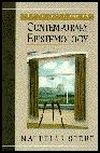Syllabus for
Classics of
Contemporary
Analytic
Epistemology

PHIL 497 - DR. KEITH KORCZ - SPRING 2001
How To Reach Professor Keith Korcz:
My office is in H. L. Griffin Hall, rm. 563. My office hours are MWF 11:00-12:00 and 1:00-3:00, and TTh 1:45-2:30. We can also meet at other times by arrangement - just ask. My office phone no. is 482-6806. You can also contact me (or ask questions) by e-mail at keithk@louisiana.edu.Required Texts:
1. An Introduction to Contemporary Epistemology by Matthias Steup (Upper Saddle River, NJ: Prentice-Hall, 1996)

2. Course Pack
Assignments & Grading:
80% of your grade will be based on a term paper, and 20% on discussion. The paper is to be done in successive drafts, on a topic approved by the instructor. The paper topic should be such that, to be properly dealt with, it requires a paper 15-20 pages in length. The first part of the paper should be a critical discussion of a published article or a view we have discussed in class. The second part of the paper should consist of an original, positive contribution to one of the issues raised in the first part of the paper. You must show me at least two drafts of the paper (the first official draft is worth 20% of your course grade and the final draft is worth 60%). You must obtain approval for the topic you select no later than two weeks before the first draft is due. The first draft is due ________________. The final draft is due _____________. {I'm happy to grade additional drafts or parts of drafts of the paper. Additional drafts will not be counted for or against your course grade.}
The letter grades will be assigned according to the standard scale, i.e. 90-100% = A, 80-89% = B, 70-79% = C, 60-69% = D, 59% and below = E. Such factors as improvement over the length of the course, attendance, etc. may be taken into consideration, especially where doing so may improve a borderline grade. You must complete all course assignments (namely both drafts of the paper) to receive a passing grade for the course (i.e. a grade other than E, U or NP).Class Policies:
Missed assignments can be made up only if an appropriate excuse, e.g., illness requiring medical attention, participation in certain official university events, etc., is provided. If you know in advance that you will miss a due date for an assignment, please let me know beforehand. An unexcused late assignment will be dropped 2/3 of a letter grade per day it is late. If you have a disability and require assistance with fulfilling class assignments, don't hesitate to notify the instructor and the Office for Services to Students with Disabilities at 482-5252. Finally, be sure you are familiar with all university policies described in the UL Lafayette Undergraduate Bulletin.Internet Resources:
The most useful Internet resource for epistemology is The Epistemology Research Guide at http://www.ucs.louisiana.edu/~kak7409/EpistemologicalResearch.htm It contains links to the home pages of numerous contemporary epistemologists as well as over 175 papers in epistemology available on-line. In the How To Survive Your First Philosophy Class pages, there is a page on doing research in philosophy which contains a link to a complete list of philosophy journals available at Dupre and links to those available on-line. The URL address is: http://www.ucs.louisiana.edu/~kak7409/Research.html.Emergency Evacuation Procedures:
A map of this floor is posted near the elevator marking the evacuation route and the Designated Rescue Area. This is an area where emergency service personnel will go first to look for individuals who need assistance in exiting the building. Students who may need assistance should identify themselves to the teaching faculty.

PLANNED READING ASSIGNMENTS*
(ICE) = Introduction to Contemporary Epistemology
(CP) = Course PackI. The Motivation For And Methods Of Epistemology
A. The Problem Of Skepticism
(CP): "The Problem of Knowledge" by John L. Pollock
B. The Method For Discovering An Answer: Conceptual Analysis
(CP): "Philosophy and Knowledge" by A. J. Ayer; (ICE) Chapter 2 "Epistemology and Philosophical Analysis"II. The Concept Of Epistemic Justification
(ICE): Chapter 4 "Concepts of Epistemic Justification"; (CP): "Concepts of Epistemic Justification" by William Alston
A. Some Deontological Accounts Of Justification
B. Doxastic VoluntarismIII. The Structure Of Justification
A. Foundationalism
(ICE): Chapter 5 "Foundationalism"
1. The Regress Argument
2. Infallibilism
(CP): "The Bases Of Empirical Knowledge" by C. I. Lewis, "Lewis On The Given" by Roderick Firth, "Empiricism and the Philosophy of Mind" by Wilfrid Sellars and "Epistemic Supervenience And The Circle Of Belief" by James Van Cleve
3. Fallibilism
(CP): "How to be a Fallibilist" by Stewart Cohen
B. Coherentism
(ICE): Chapter 6 "Coherentism" and Chapter 7 "The Debate Over Foundationalism And Coherentism"
1. Linear Coherentism
2. Holistic Coherentism
(CP): "The Explanatory Coherence Theory" and "Internal Coherence And Personal Justification" by Keith LehrerIV. The Conceptual Analysis Of Knowledge
(ICE): Chapter 1 "Knowledge and Justification"
A. Belief
B. Truth
C. The Gettier Problem
1. The Problem
(CP): "Is Justified True Belief Knowledge?" by Edmund Gettier
2. Some Proposed Solutions:
a. No Reasoning Through A False Premise
(CP): "An Alleged Defect In Gettier Counterexamples" by Richard Feldman
b. Reliabilist Theories Of Knowledge
(ICE): Chapter 8 "Reliabilism"; (CP): "Discrimination and Perceptual Knowledge" by Alvin Goldman, "Reliability & Justification" by Richard Feldman, "Justification & Truth" by Stewart Cohen, "Externalist Versions of Foundationalism" by Laurence Bonjour
c. Defeasibility Theories
(CP): "Knowledge: Undefeated Justified True Belief" by Keith Lehrer & Thomas Paxson
D. Knowledge, Skepticism And Closure
(CP): "Skeptical Possibilities" by Robert Nozick
E. The Basing Relation
(CP): "Recent Work on the Basing Relation" and "The Causal-Doxastic Theory of the Basing Relation" by Keith Allen KorczV. Internalism Vs. Externalism: A Middle Ground?
"Internalism and Externalism in Epistemology" by William Alston
A. Internalist Theories Of Justification
B. Externalist Theories Of Justification
C. Combined Theories
(CP): "Strong and Weak Justification" by Alvin Goldman, "An Internalist Externalism" by William Alston and "Alston's Internalistic Externalism" by Marshall Swain